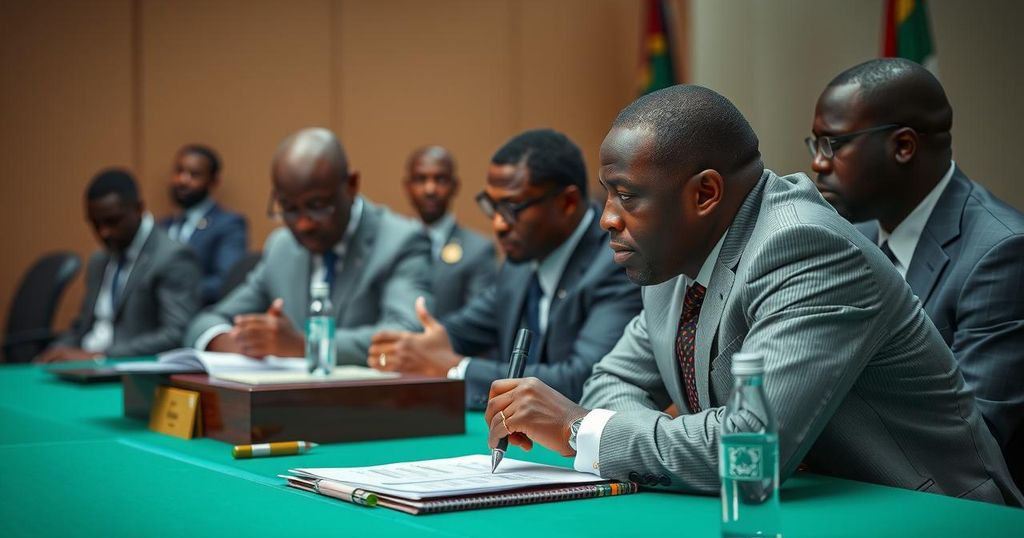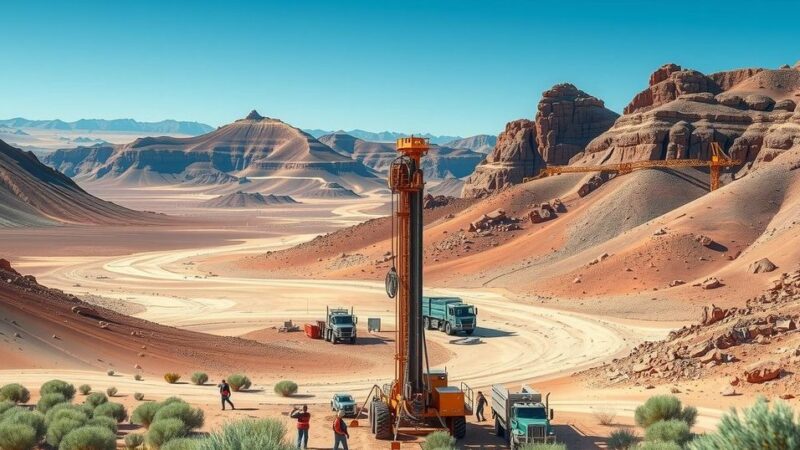GoviEx Uranium Inc. has filed for arbitration against Niger for the alleged breach of legal obligations after the State revoked its mining permit for the Madouela uranium project. The company stresses the negative impact on regional development and remains open to resolving the issue amicably, while also indicating the possibility of legal action.
GoviEx Uranium Inc., headquartered in Vancouver, has initiated arbitration proceedings against the State of Niger, asserting that the government violated its legal obligations by withdrawing the mining permit for the Madouela uranium project earlier this year. The company, alongside its subsidiary GoviEx Niger Holdings Ltd, is utilizing the Convention on the Settlement of Investment Disputes Between States and Nationals of Other States (ICSID Convention) for its claims. They argue breaches occurred not only under a 2007 bilateral agreement but also under Nigerien law.
Since entering the Nigerien market in 2007, GoviEx has progressed the Madouela project from exploration to a feasibility study, published in late 2022. They indicated that despite political upheaval in Niger following a coup d’état in July 2023, the project was on the verge of development. The company has reportedly attracted over USD200 million in interest for debt financing, undertaken crucial environmental assessments, and initiated infrastructure development, which includes road construction to facilitate access to the site.
The anticipated initial capital investment for Madouela stands at USD343 million, with projections to generate up to 800 job opportunities over its estimated twenty-year operational life. GoviEx expressed concern that the revocation of their project rights will detrimentally affect regional socio-economic development. The company has made efforts to amicably resolve the issue with Nigerien authorities, including a local administrative recourse, but has faced a lack of engagement from the State.
GoviEx firmly maintains that they are entitled to the restoration of their project rights or appropriate monetary compensation as a consequence of Nigerien governmental actions. They remarked that they might explore alternative legal remedies, including international arbitration, if necessary. Nevertheless, the company highlighted its commitment to constructively engage with the Nigerien government to find an amicable resolution. In a broader context, the Nigerien authorities have also recently revoked the operating permits of the Orano subsidiary Imouraren SA and have assumed operational control of its SOMAÏR subsidiary, which manages Niger’s only active uranium mine. Meanwhile, Global Atomic continues its development of the Dasa uranium mine, as Niger seeks to attract additional investment in its natural resource sector.
The situation surrounding GoviEx Uranium Inc. and the State of Niger highlights the complexities of international mining operations amid changing political landscapes. The withdrawal of mining permits and operational control of major projects demonstrate the challenges faced by foreign investors in Niger’s resource sector, especially under the backdrop of political instability. The ICSID Convention affords investors recourse to arbitration in instances of breach of contract or investment agreements, providing a pathway for dispute resolution in international investment contexts.
In conclusion, GoviEx Uranium Inc. has commenced arbitration against Niger, asserting breaches of legal obligations following the withdrawal of their mining permit for the Madouela uranium project. The company underscores the broader implications of such governmental actions on regional economic development and remains committed to finding a resolution through constructive engagement with the State, while also preparing to assert their rights through international arbitration if necessary.
Original Source: world-nuclear-news.org






